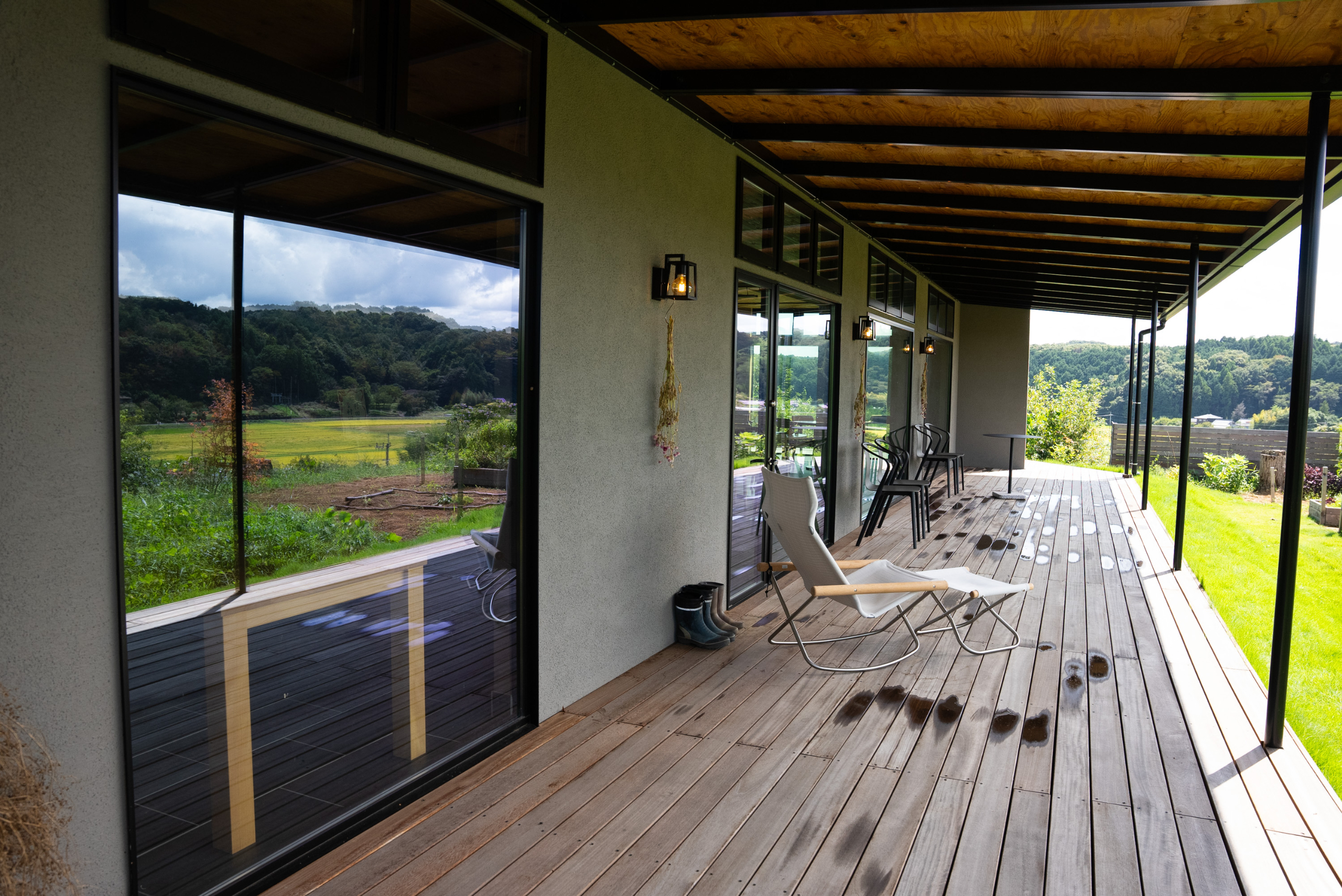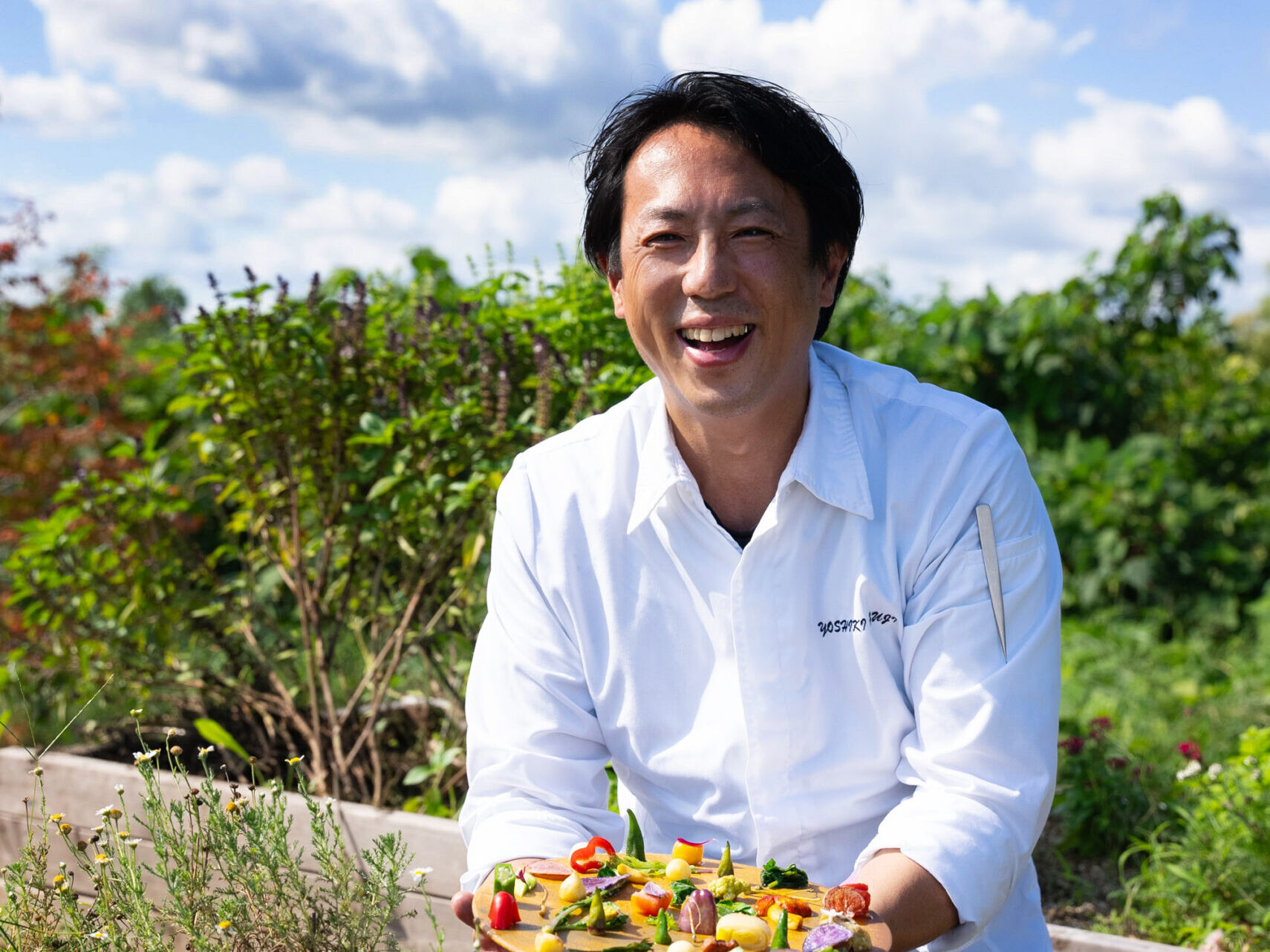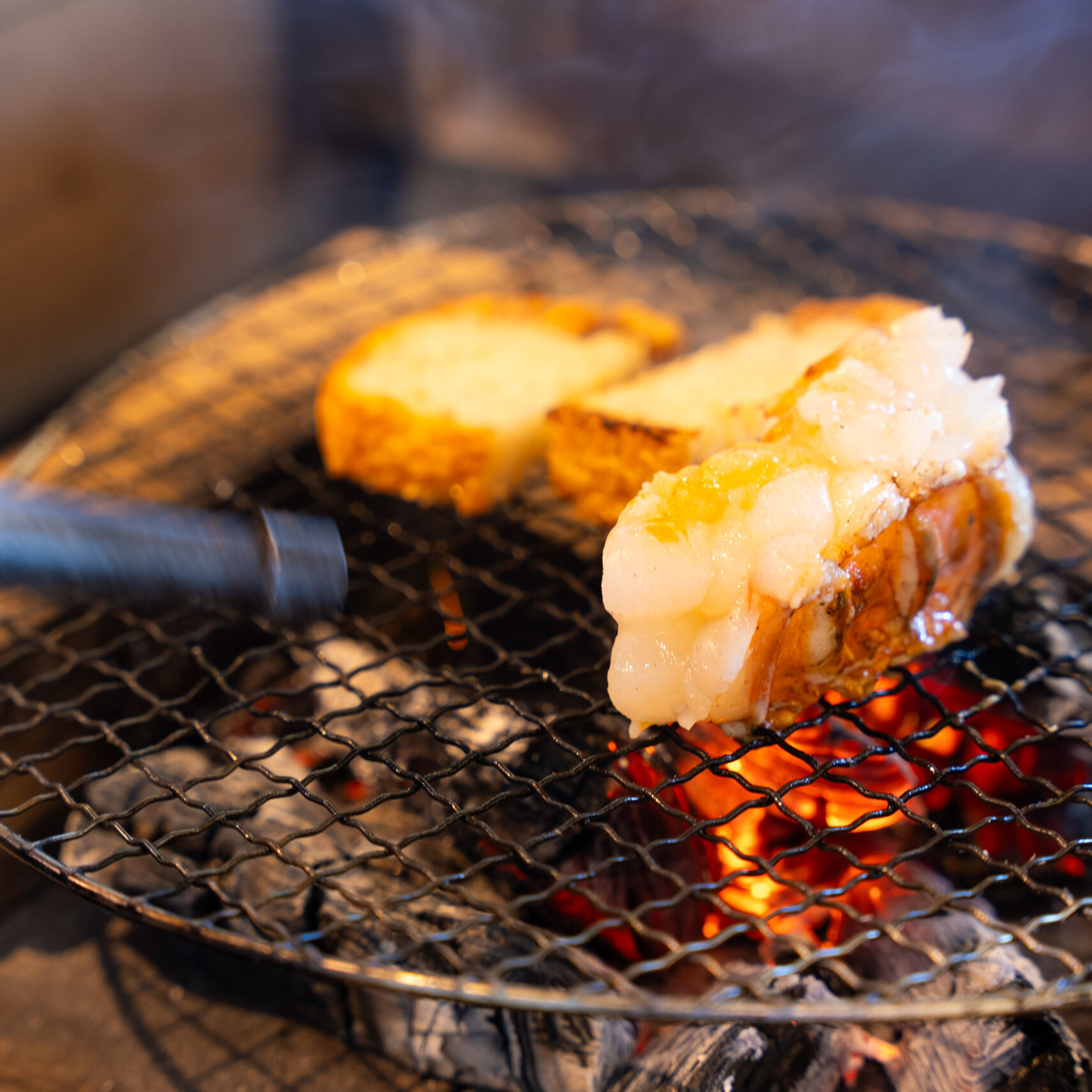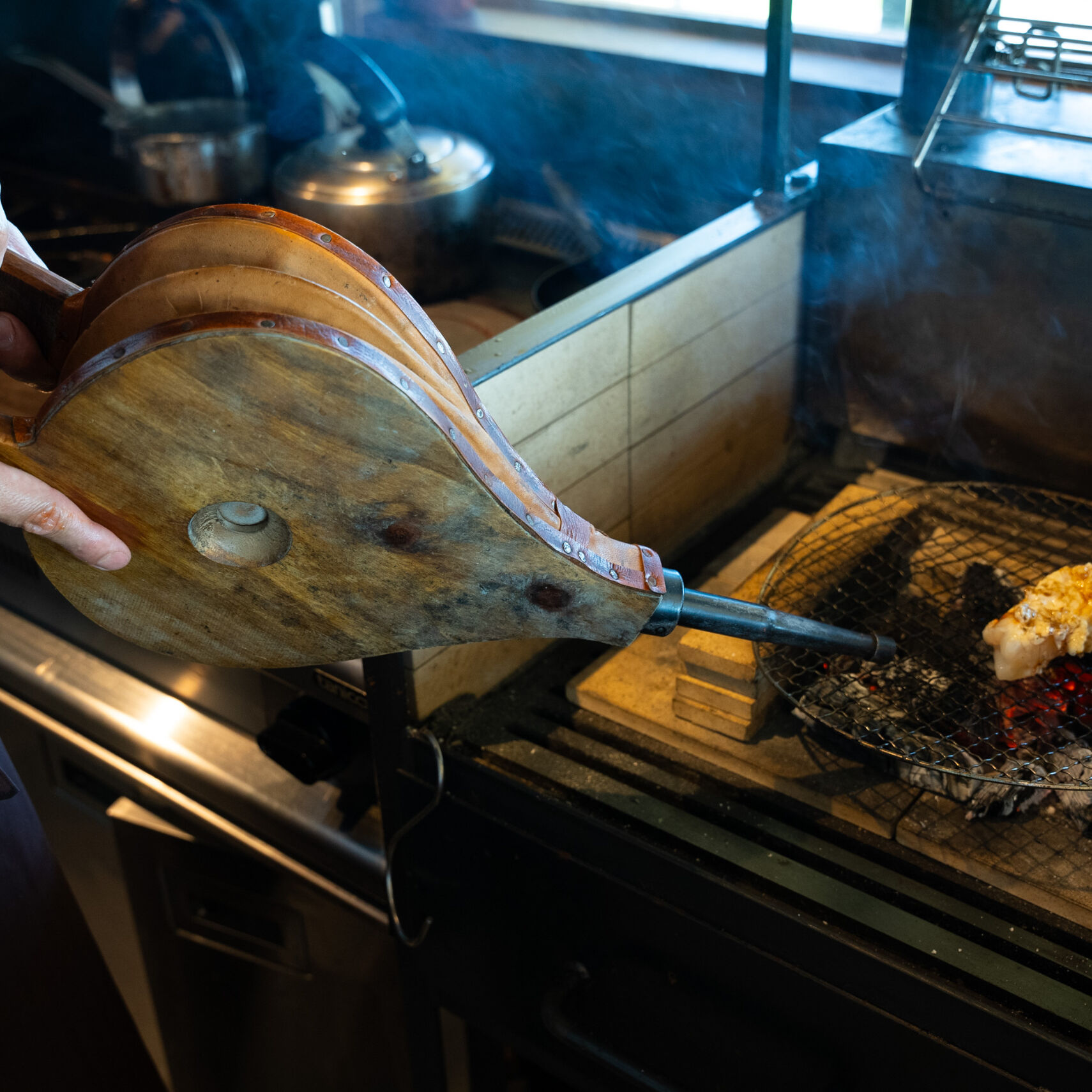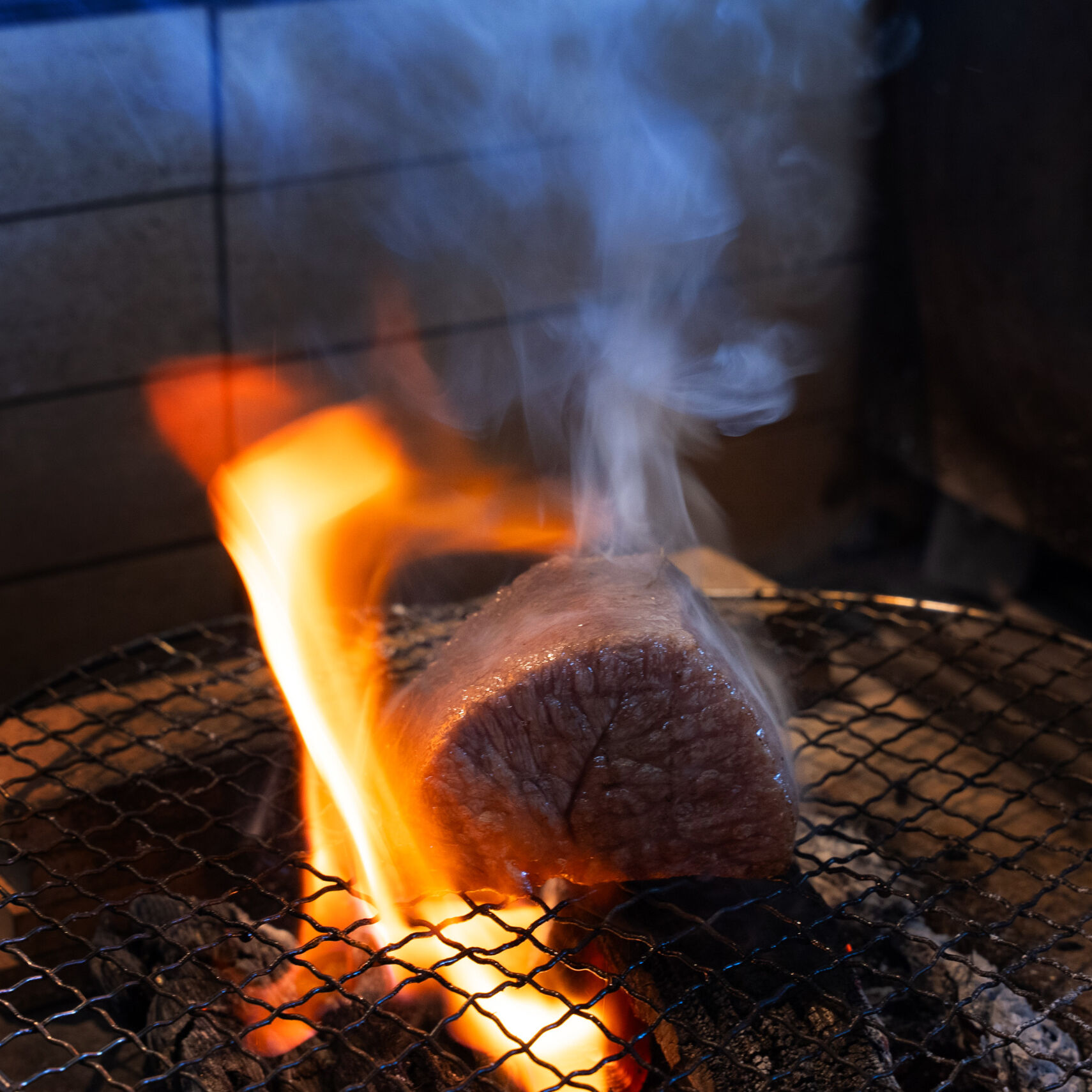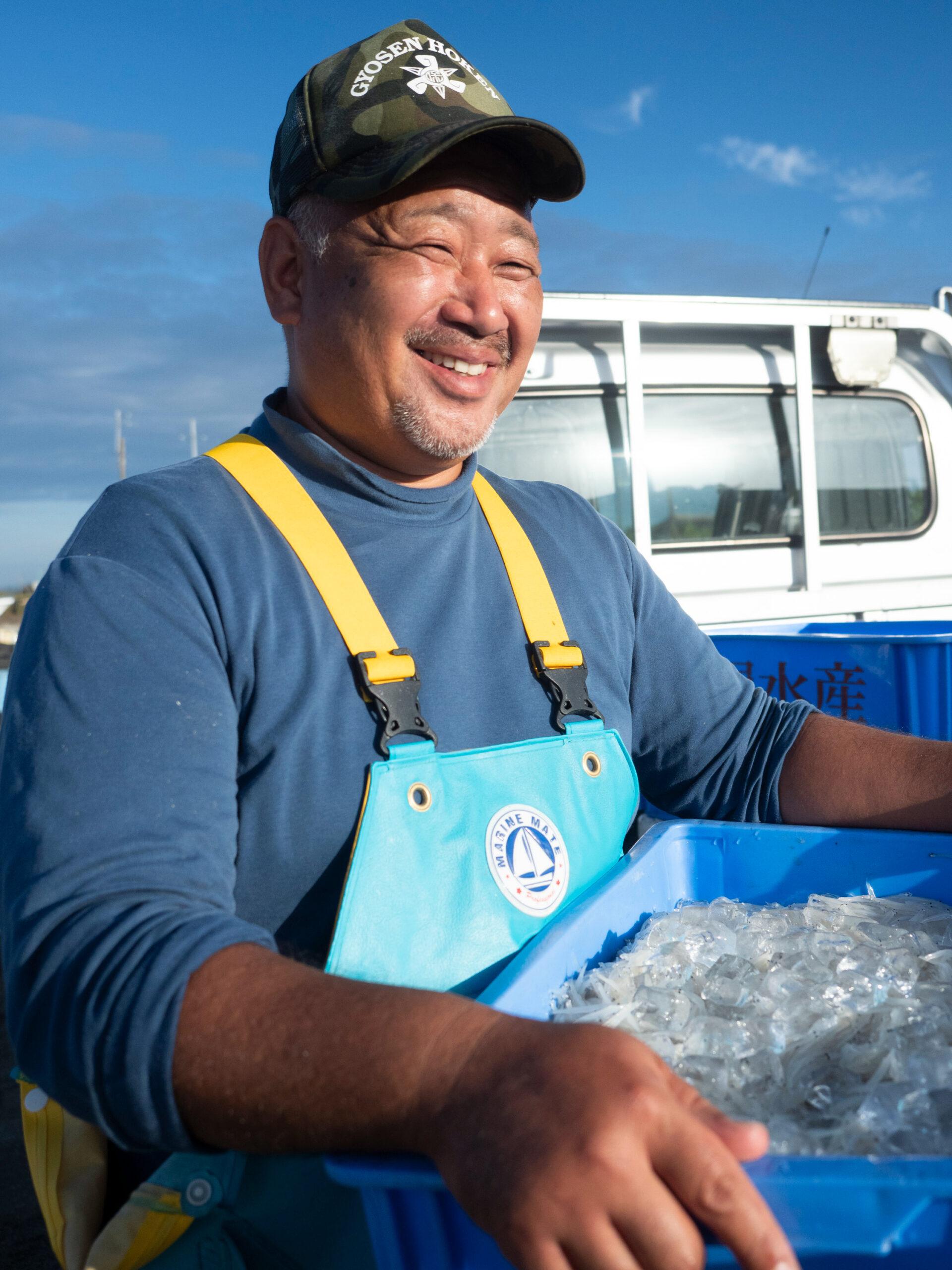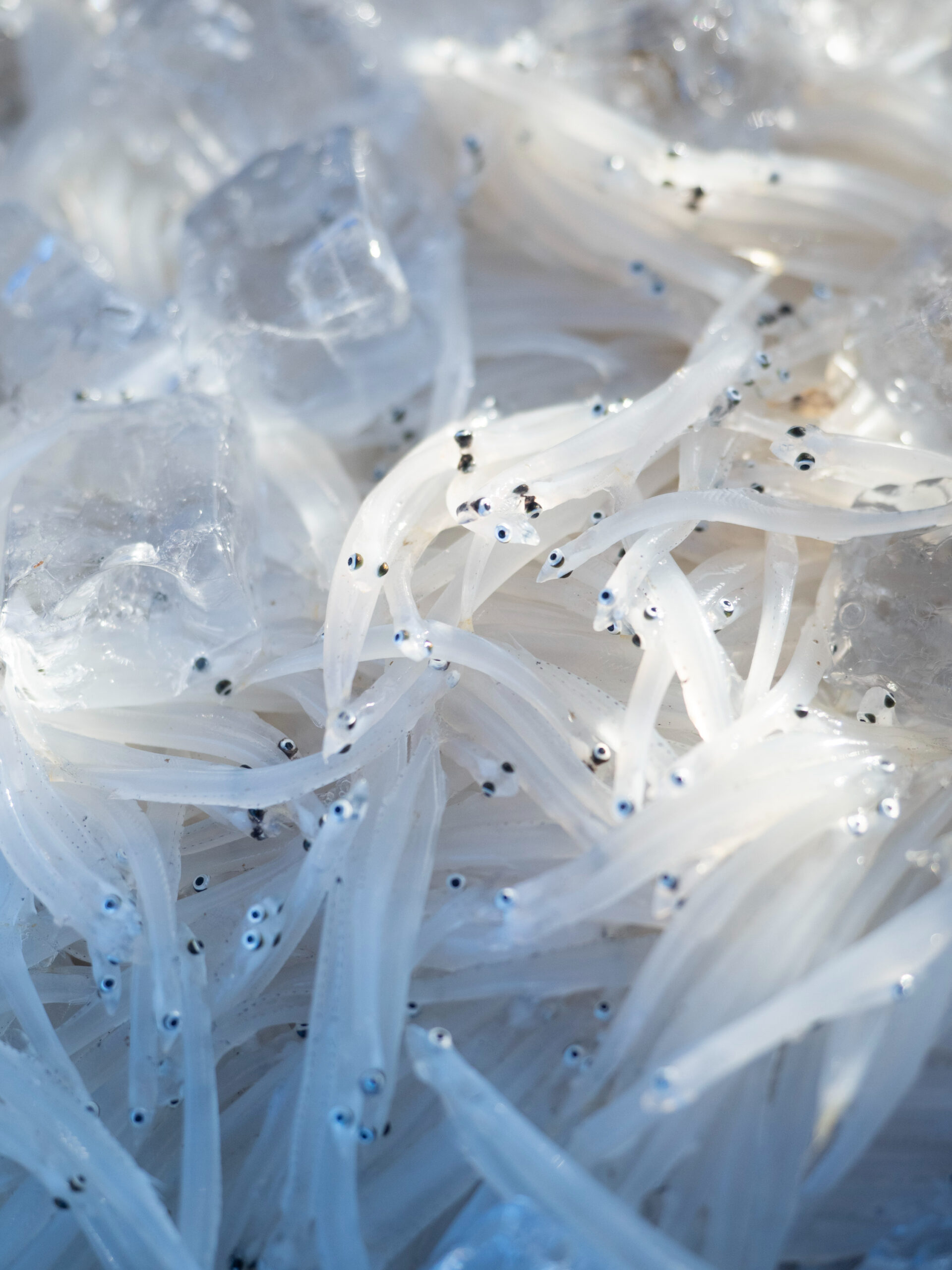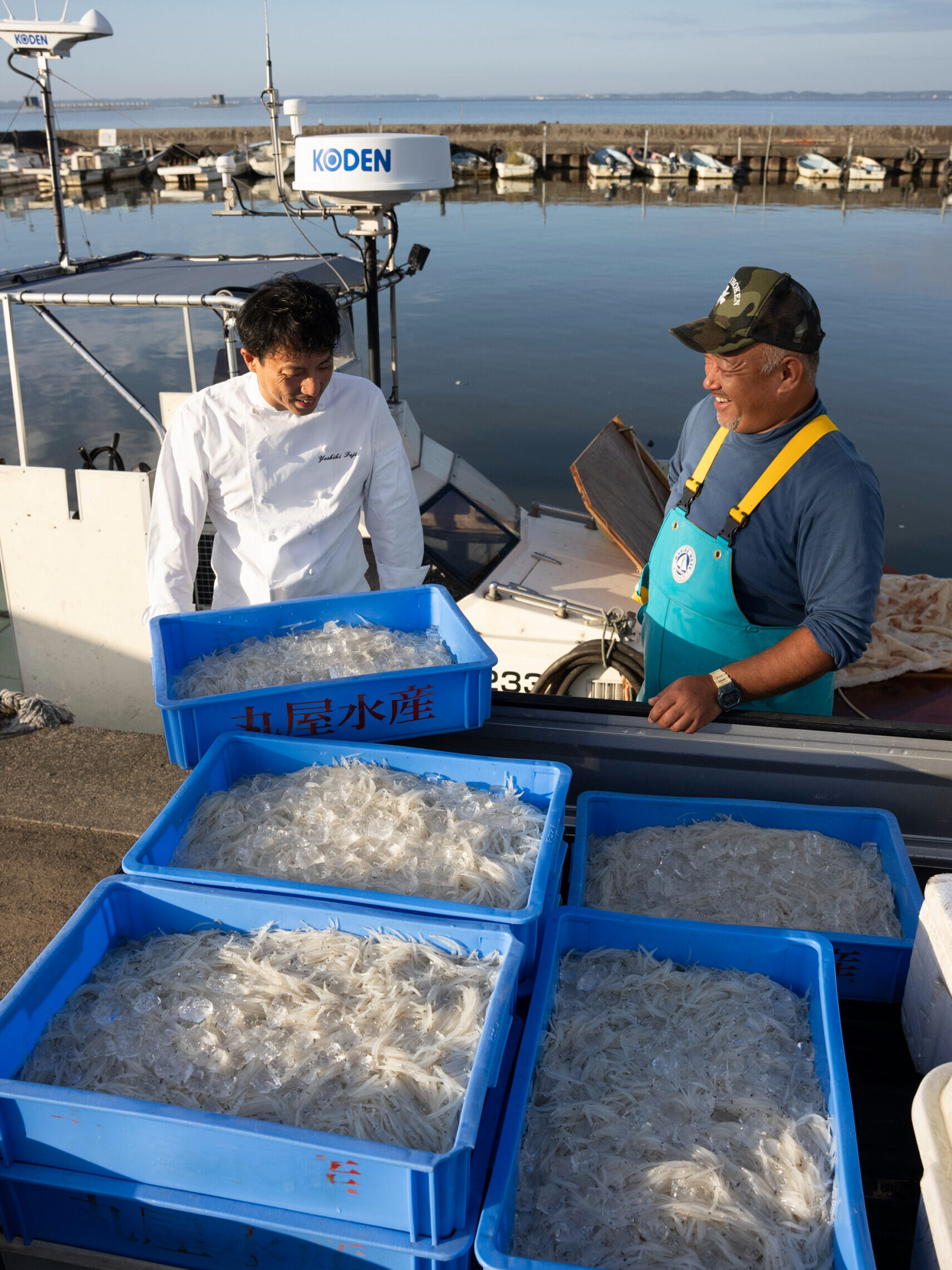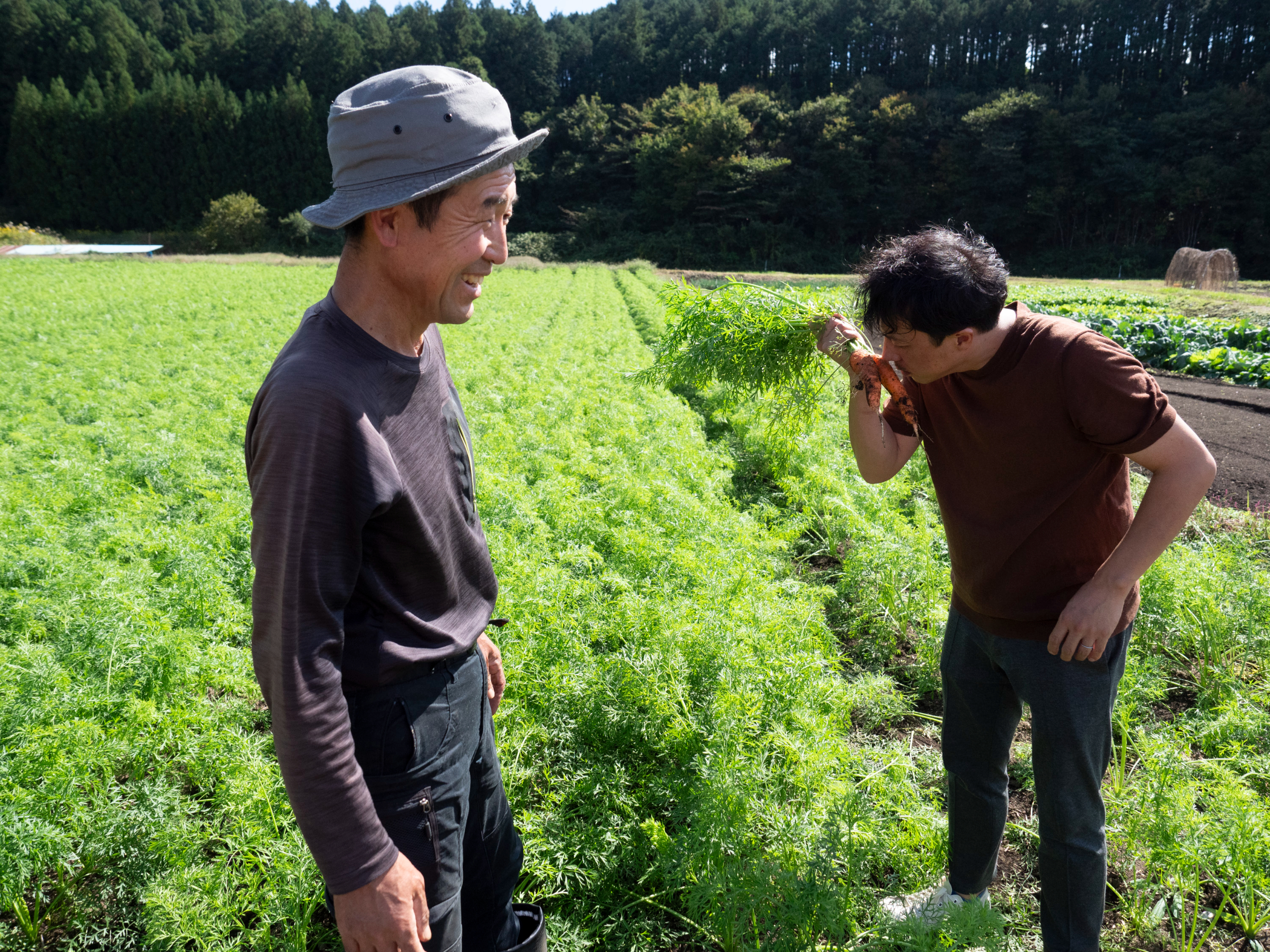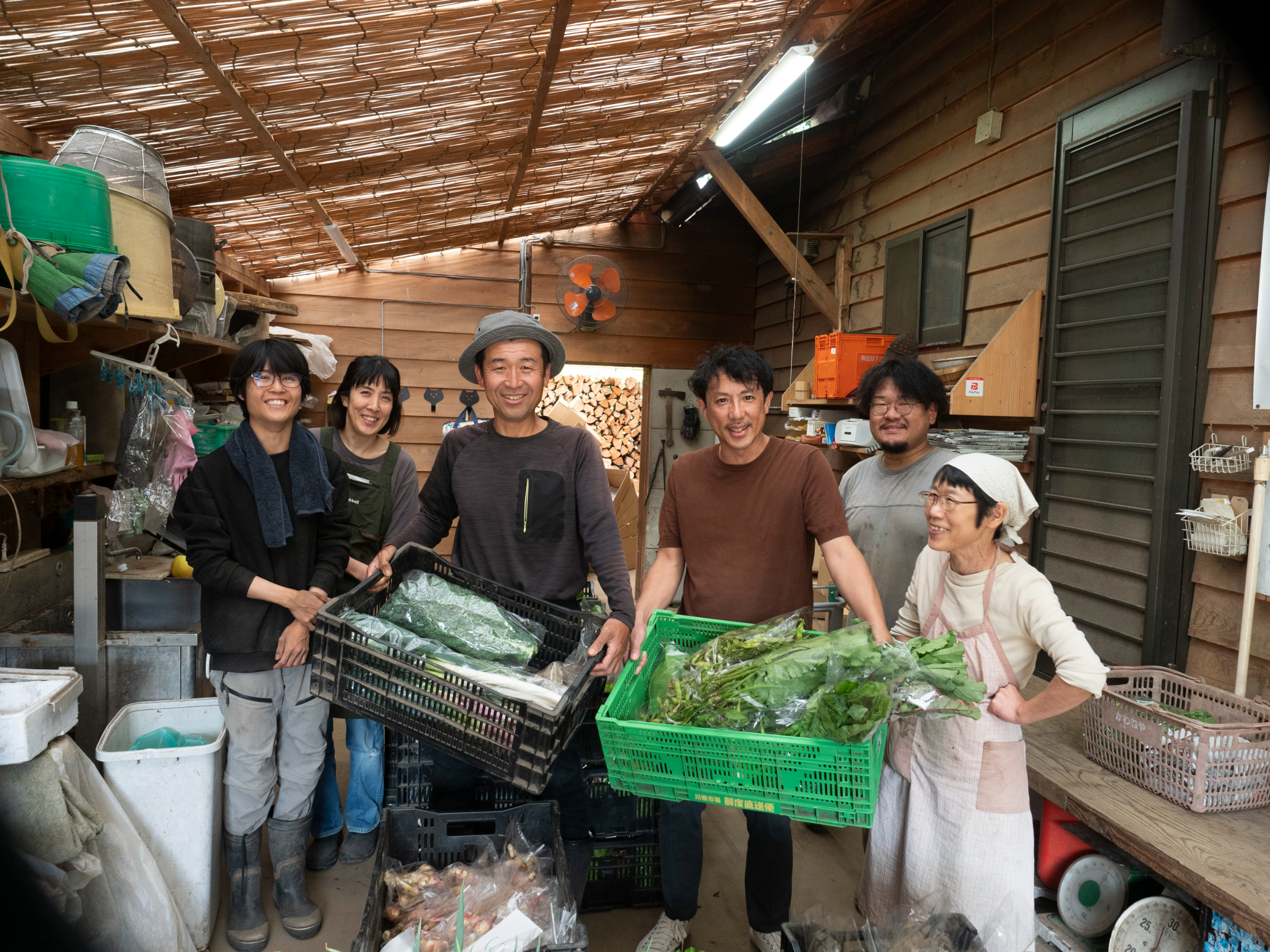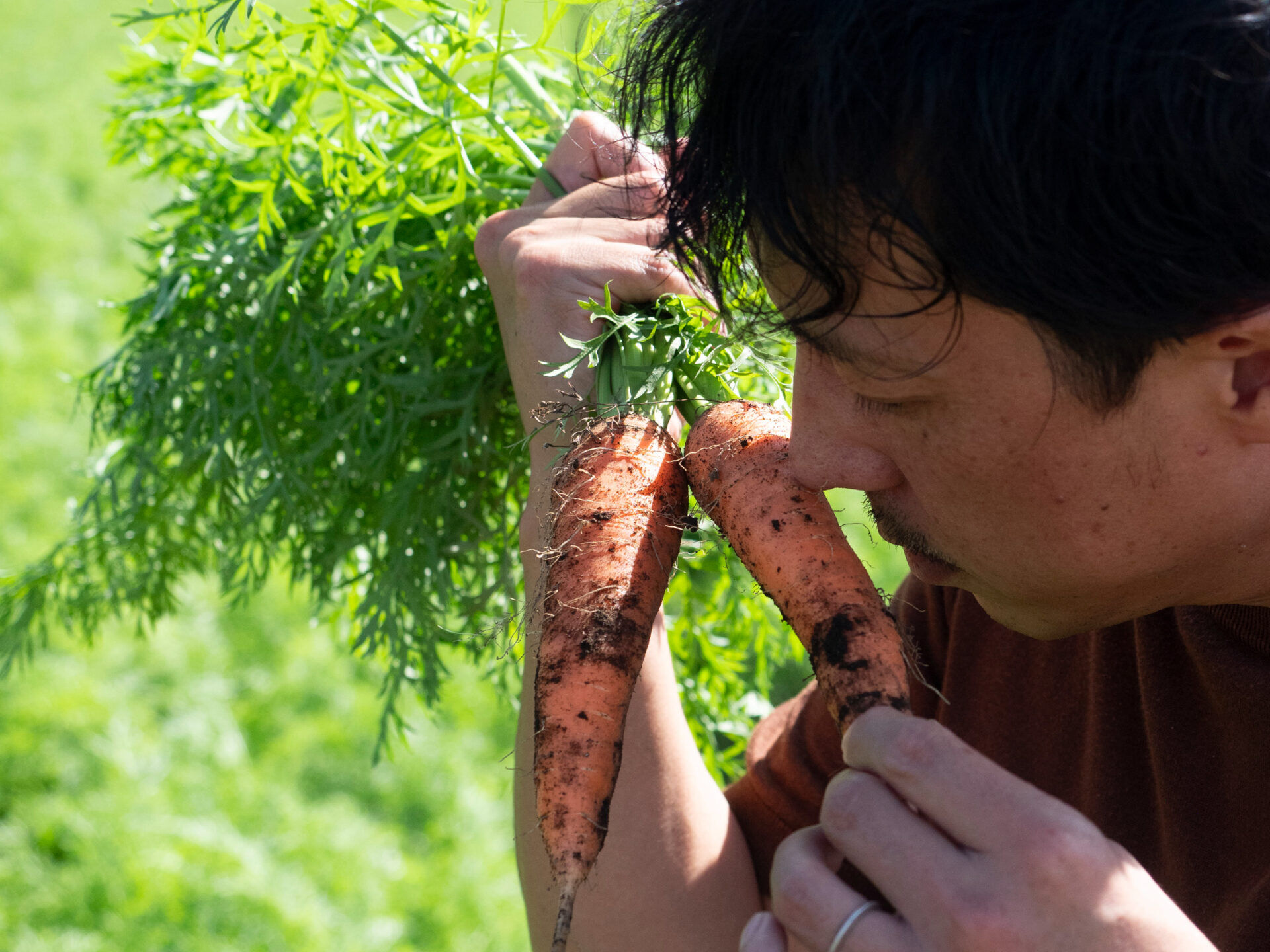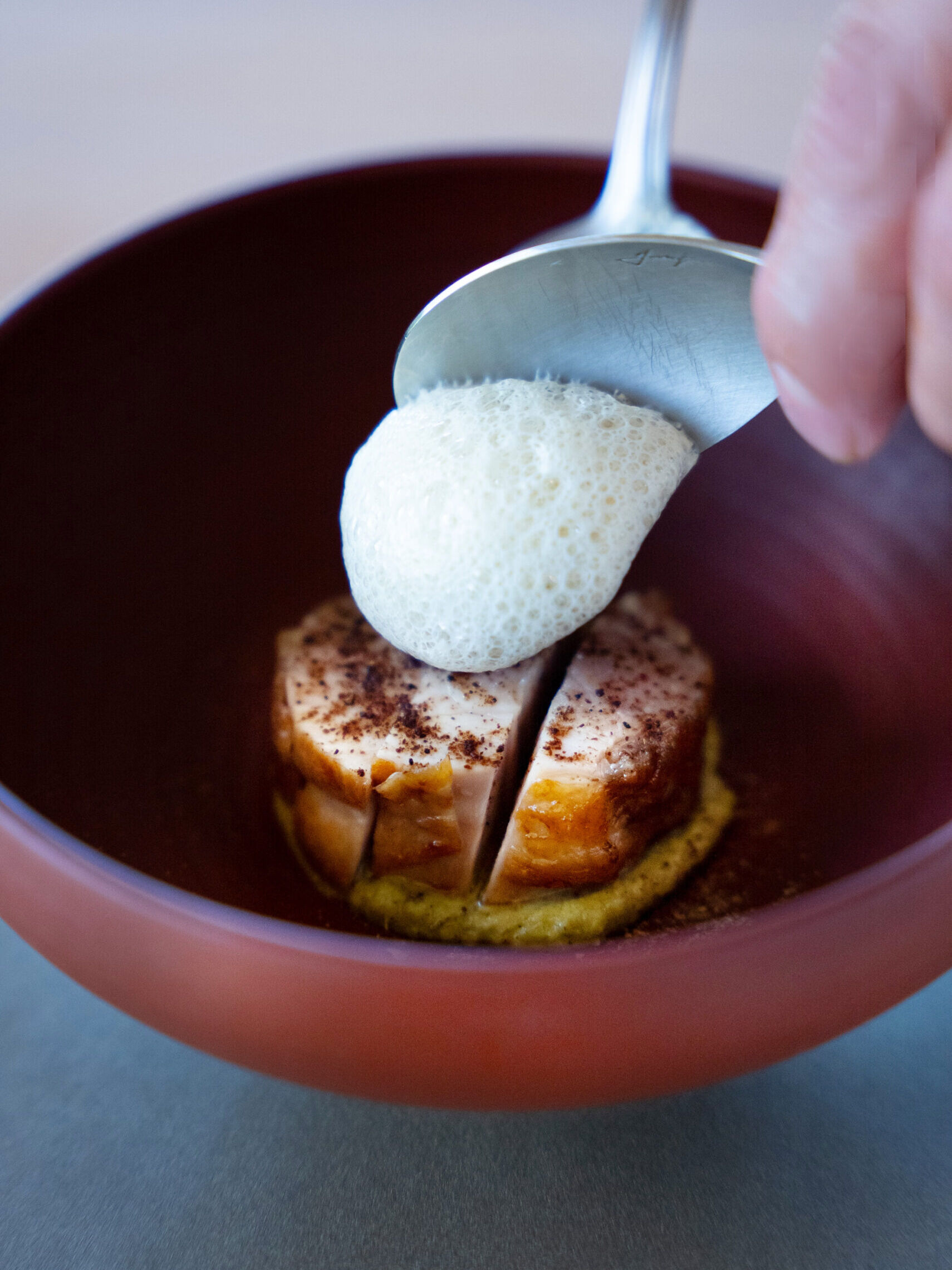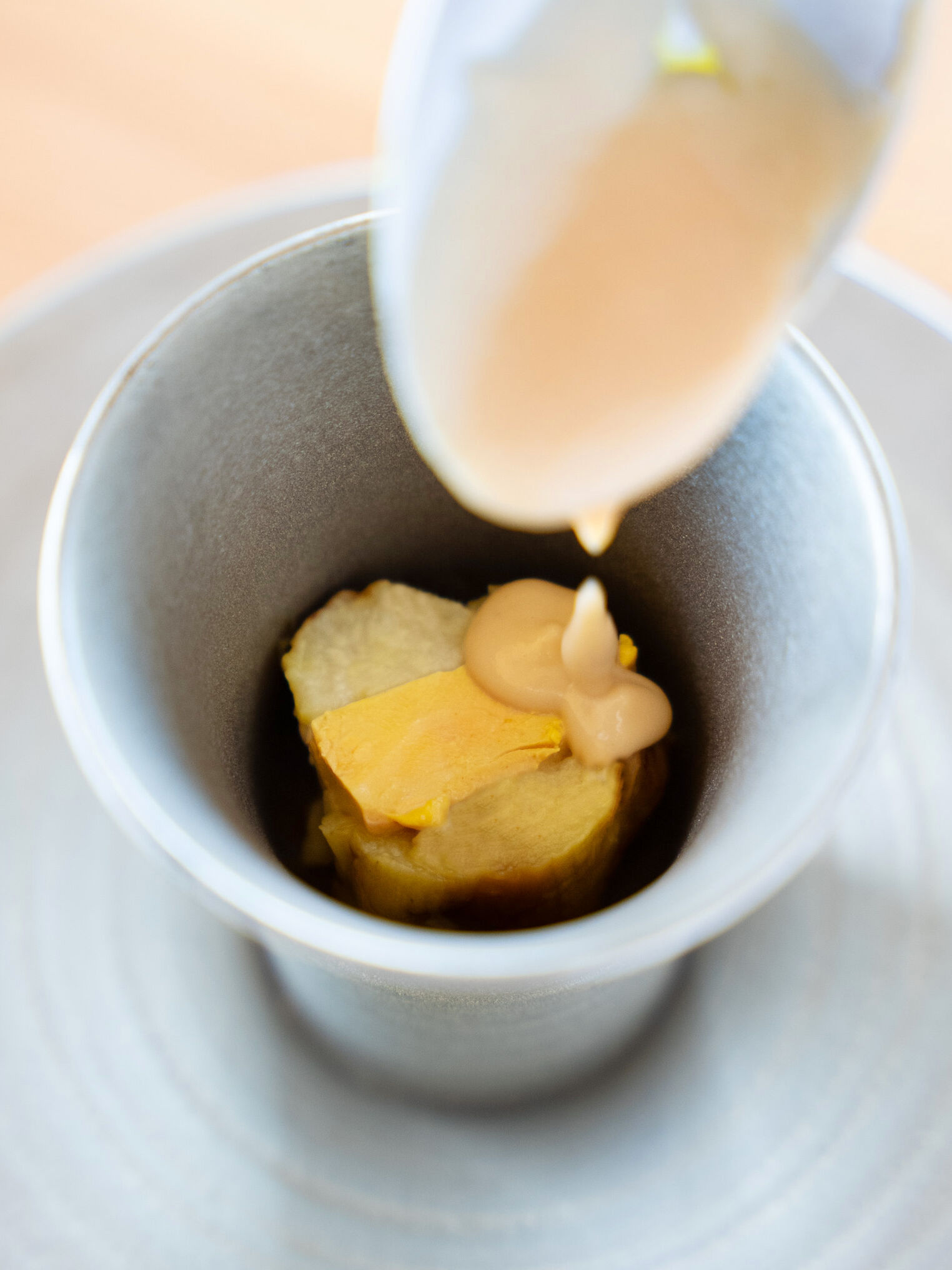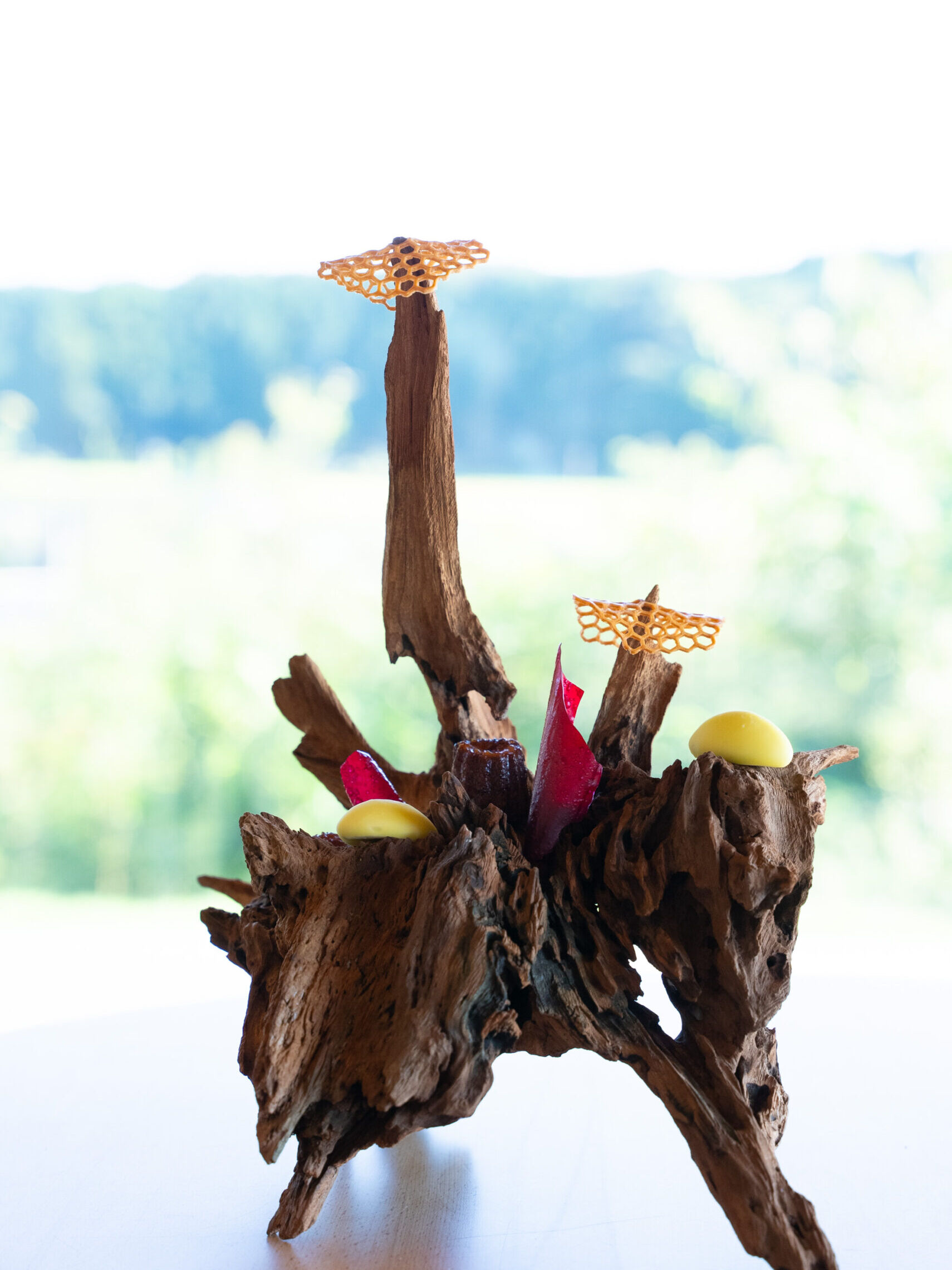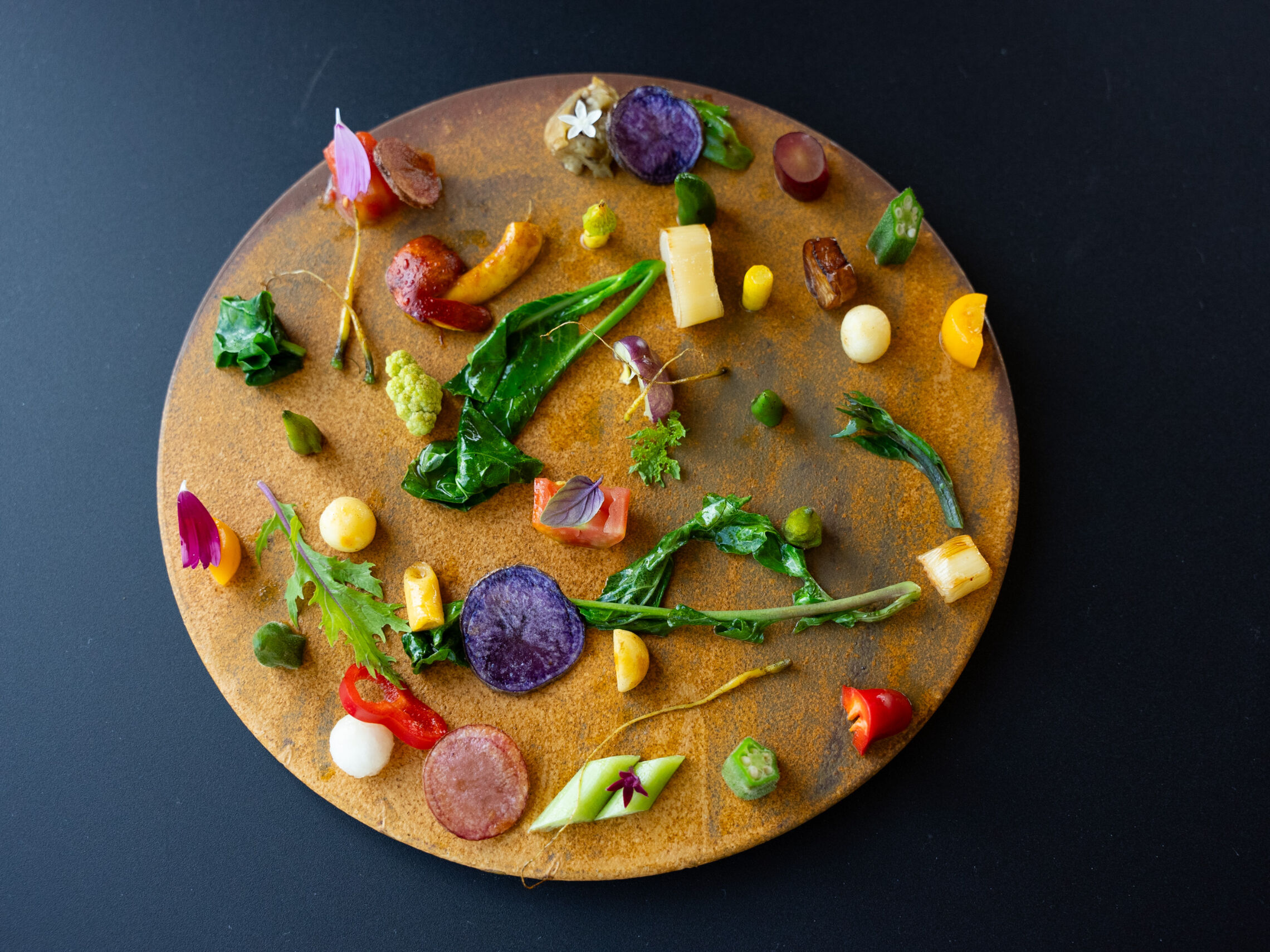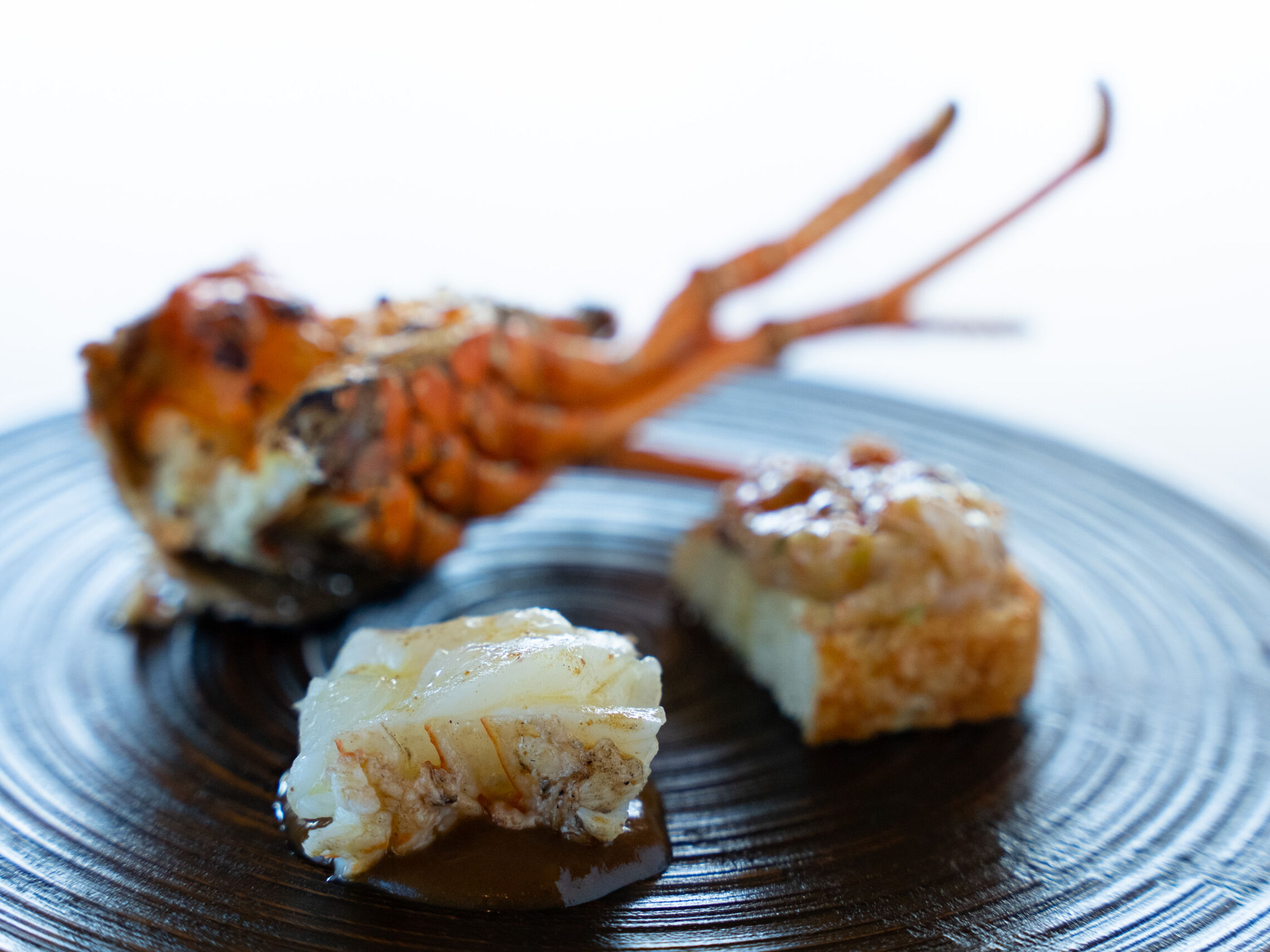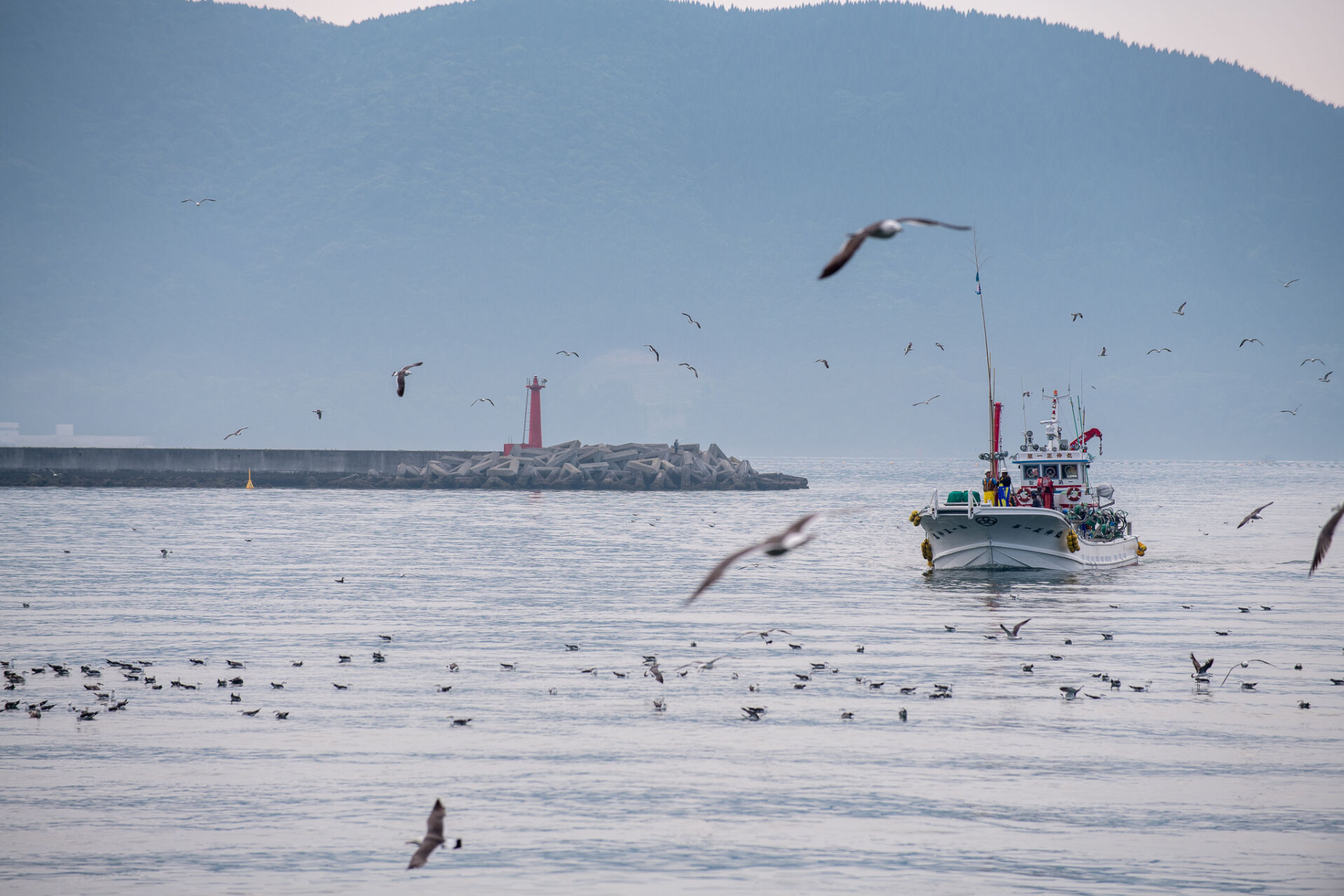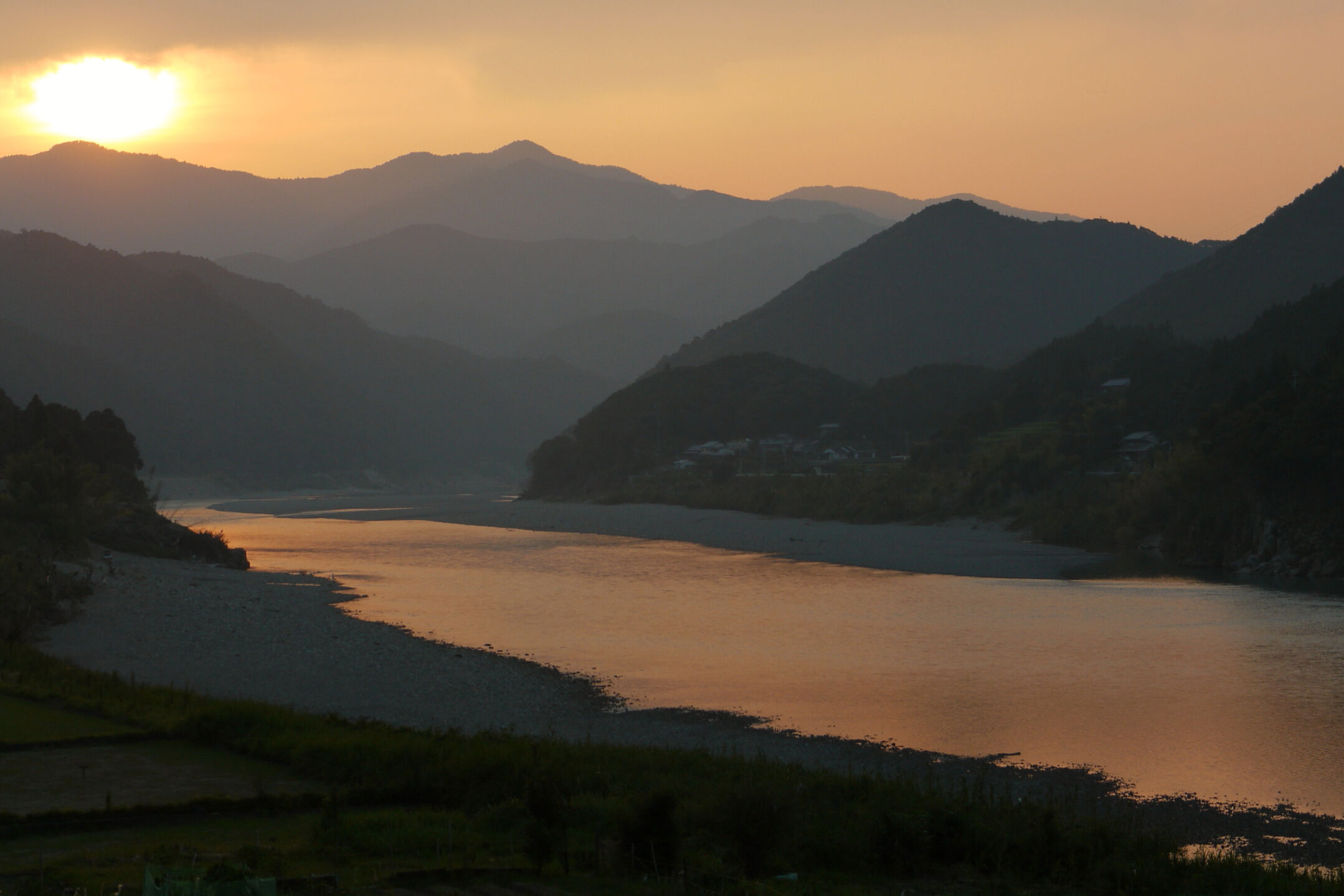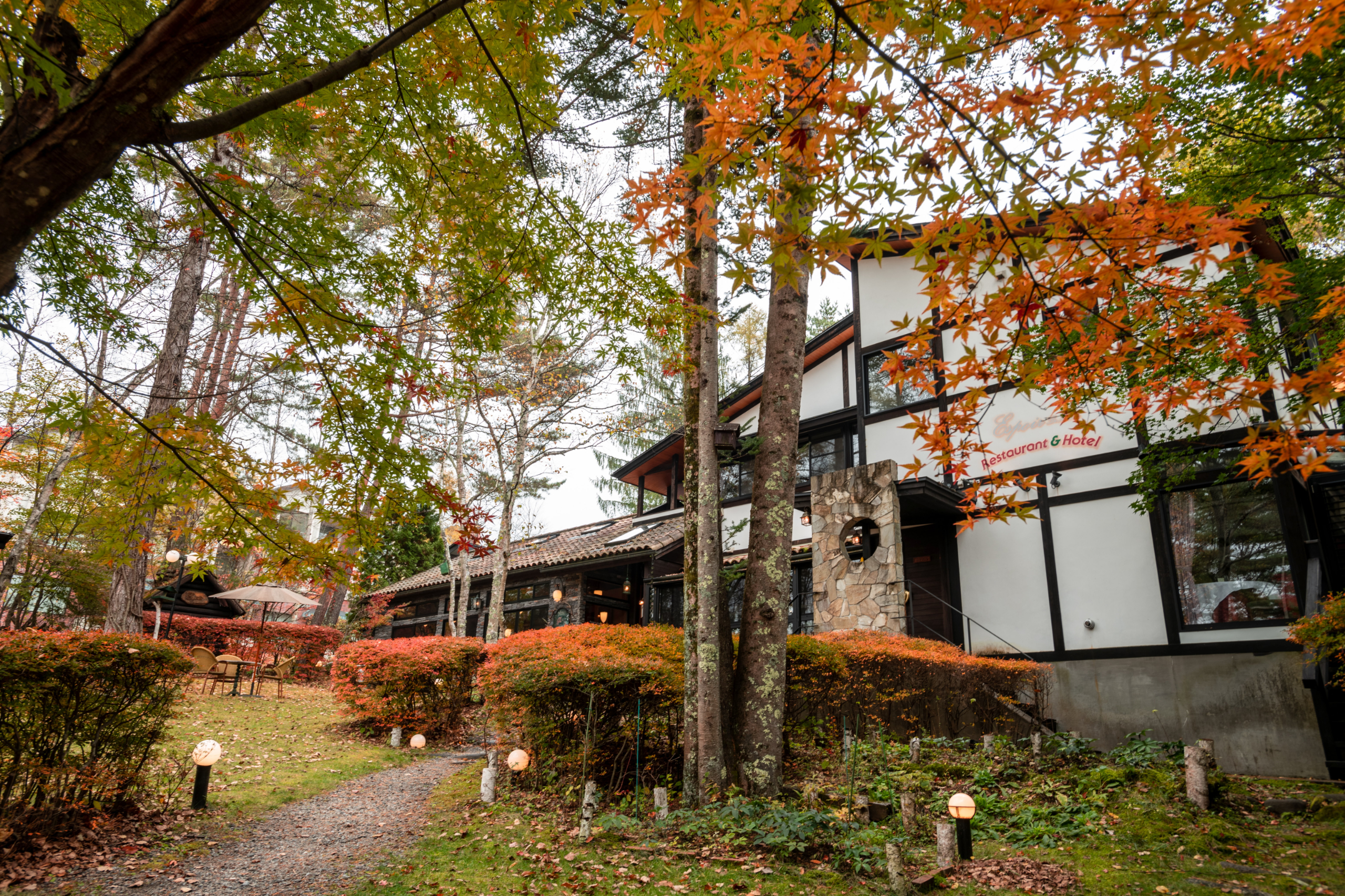The restaurant sits on a gentle hill overlooking farmlands in the outskirts of Hitachi-Omiya City. Not far from here, Chef Yoshiki Fuji and Madame Yuka previously ran the popular “Sesson-an,” a restaurant housed in a renovated traditional Japanese home. In May 2024, driven by their passion to create a space where they could fully express their culinary vision, they built and opened this new establishment.
About two hours by car from Tokyo, guests first unwind on the terrace upon arrival. Here, the aperitif tastes exceptionally delightful as fresh breezes rise from the village below.
When one thinks of Chef Fuji, the Basque Country of Spain comes to mind. While Sesson-an was beloved locally as a French restaurant, Chef Fuji could never let go of his passion for San Sebastián, the culinary capital that draws global visitors by celebrating its unique local ingredients. Finally, in 2019, he closed his restaurant to spend a year honing his culinary skills in Spain.
The results of his inspiring journey now enchant us through his amuse-bouche “Memories of Basque,” a creation brilliant in color, aroma, and spices.
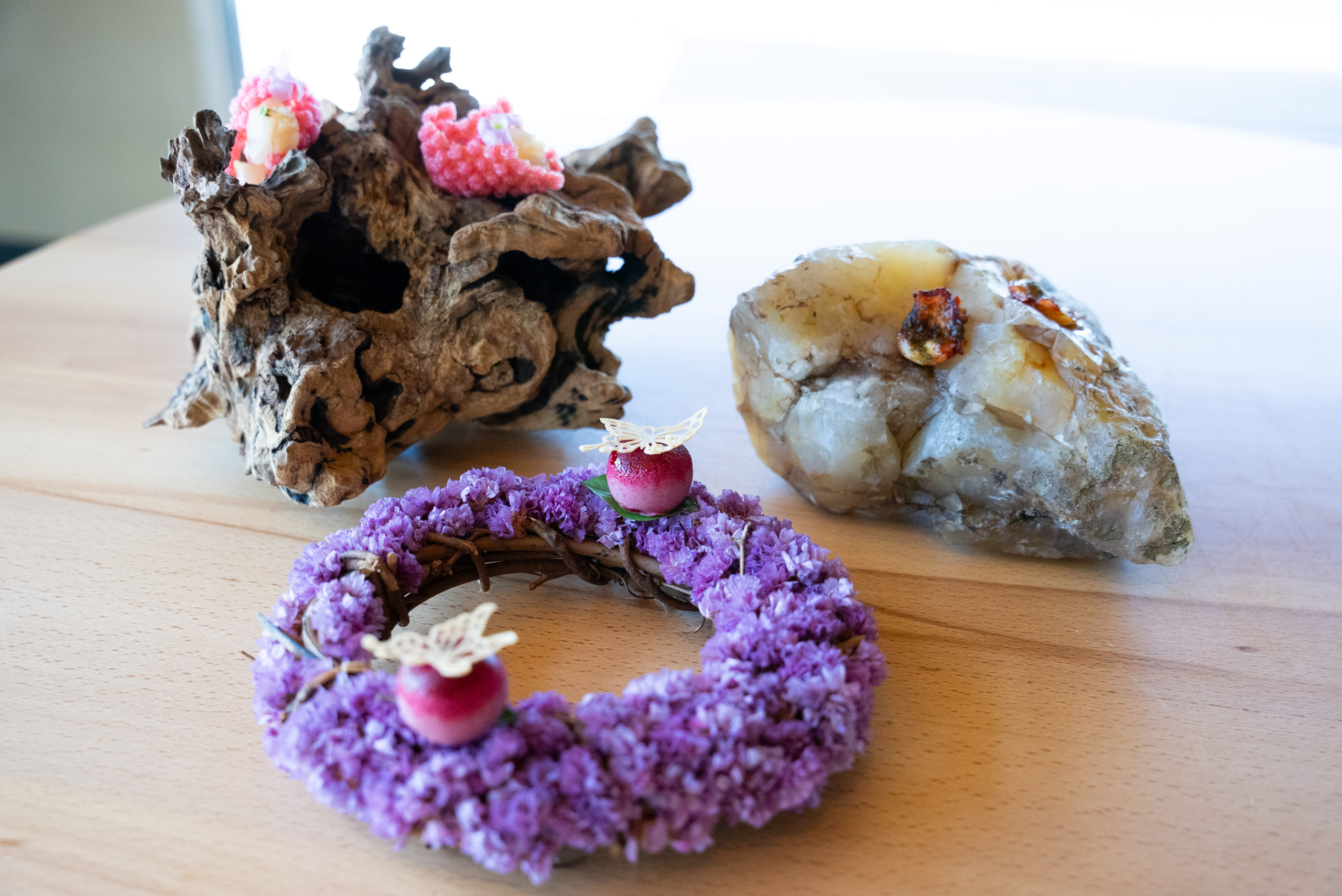
baraki, despite being part of the Kanto region, remains surprisingly unknown to many Tokyo residents – so close yet unexplored. This area, historically known as Hitachi-no-Kuni (the Province of Hitachi), was one of Japan’s ancient provinces, with a rich heritage dating back more than a millennium. Today, this historic land is a treasure trove of ingredients: the Pacific coastline, Lake Kasumigaura (Japan’s second-largest lake), the Kujigawa River famous for its ayu sweetfish, and vast agricultural lands.
For these fresh ingredients, the asador cooking method – using charcoal and firewood, which has recently gained attention in Spain and spread worldwide – might be the perfect approach. It was natural for Chef Fuji, with his Spanish experience, to dream of creating his own restaurant where he could fully utilize fire. Under his skilled hands, spiny lobsters (increasingly common in Ibaraki’s ports due to climate change) and Hitachi beef are masterfully grilled.
Such cuisine requires the support of many producers. Let us introduce three key figures:
Masaru Kaito from Kasumigaura Port is a master fisherman of shirauo (icefish), a local specialty. These fish are transparent when freshly caught. To maintain this freshness, Kaito-san washes them on his boat and ships them immediately, allowing the restaurant to serve the fresh shirauo at dinner. The artistic opening dish would be impossible without Kaito-san’s shirauo.
Taiki Fuse cultivates organic vegetables in the Satomi district of Hitachi-Ota City, at the northern edge of Ibaraki Prefecture. His farm, situated 250 meters above sea level in the mountains, is where he also studies local heirloom vegetables. As a family operation, they are valuable producers who can directly convey the power of the soil.
Toru Tsuji, a wood and lacquer craftsman, creates vessels that enhance the flavors of the plated dishes. Originally from Hokkaido, Tsuji-san moved to Daigo Town after graduating from Tokyo University of the Arts graduate school. He is the leading figure in Daigo urushi, personally handling everything from lacquer production and refinement to wooden vessel creation and lacquering.
“Consistent craftsmanship is our fundamental principle. This allows us to maintain our artistic vision throughout the process,” says Mori-san. Chef Fuji adds, “When cooking and plating with Hitachi ingredients, the lacquer vessels naturally complement the dishes, suggesting new possibilities for our region.”
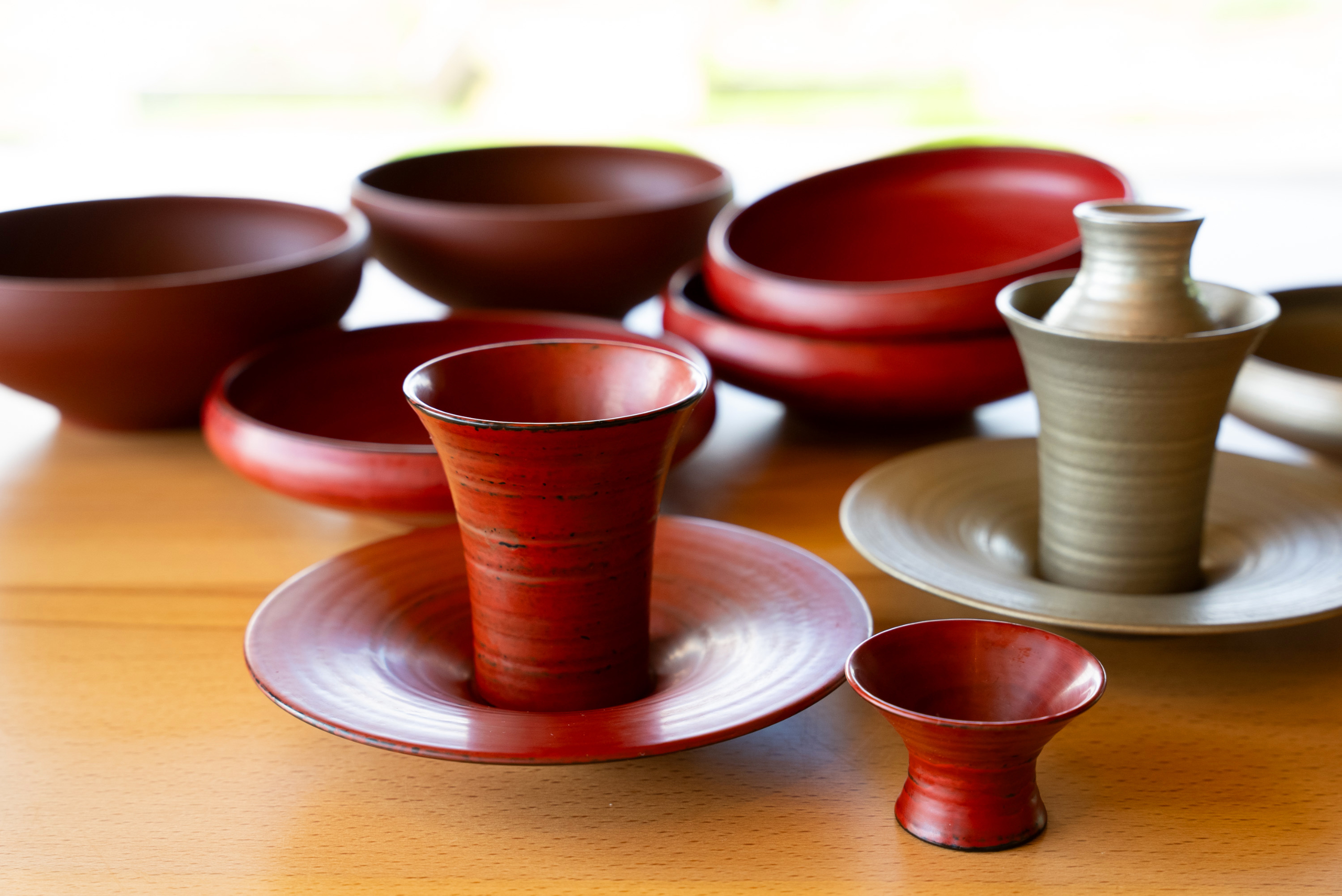
Another indispensable presence at the restaurant is Madame Yuka. She welcomes guests with a radiant smile and serves the dishes and wines with grace. The warm atmosphere created by the chef and his wife seems to further enhance the flavors of the cuisine.
“We hope to transform Hitachi-no-Kuni, this historic province, into a gastronomic destination rivaling the Basque region.”
The challenge for Yoshiki Fuji has only just begun.
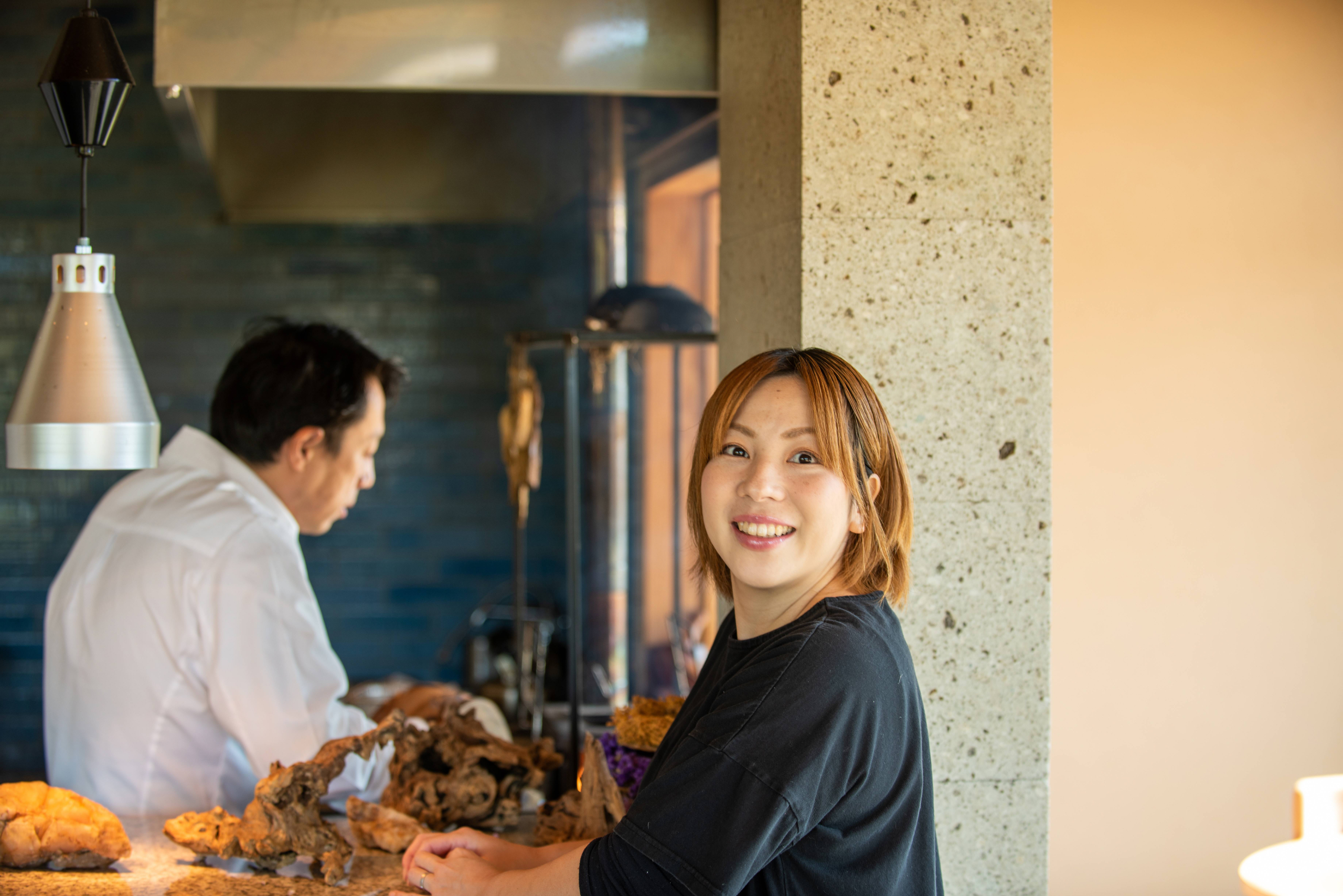
YOSHIKI FUJI
1107-1 Aza Kaminotsubo, Ishizawa, Hitachi-Omiya City, Ibaraki Prefecture
Phone: 0295-53-0330
Access: 30 minutes from Naka IC on Joban Expressway
Text/Shunji Miyagawa
Photography/Yuji Komatsu, Masashi Okutani
Translation/Yumiko Sushitani
Related Posts
2025-07-25
“Miyagi Means Sushi”: A Vision Shared by a Master Fishmonger and a Sushi Artisan
There is a group of passionate individuals determined to make the phrase…
2024-11-10
The Art of Watershed Cuisine Along Sacred Mountain Waters In a World Heritage Village
Tenkawa Village is part of the UNESCO World Heritage site "Sacred Sites and…
2025-01-15
The Epicenter of Gibier Cuisine: An Auberge Nurtured by Family Love and Community
Along the enchanting "Märchen Road," just off the Suwa-Minami Interchange of…


